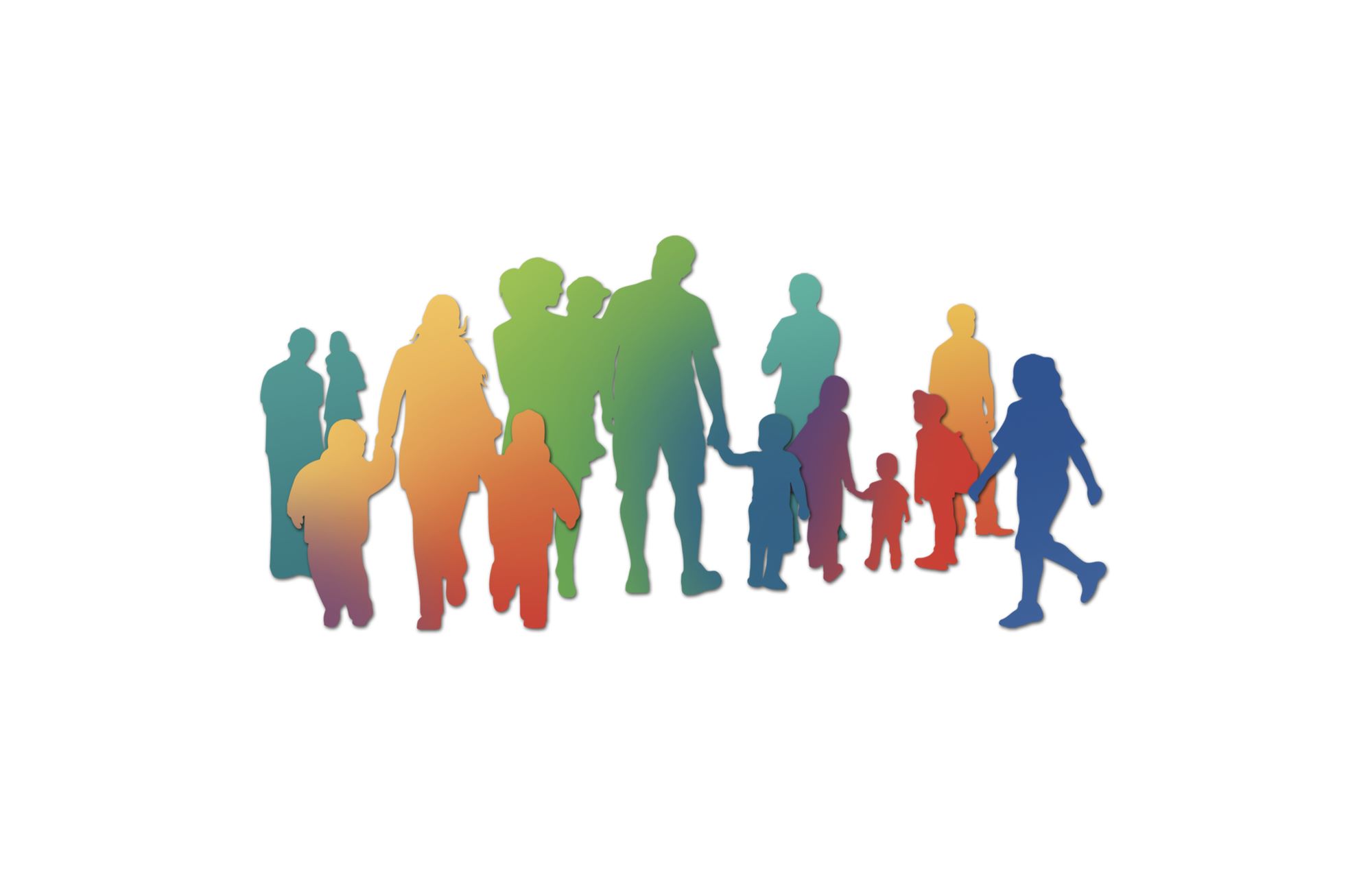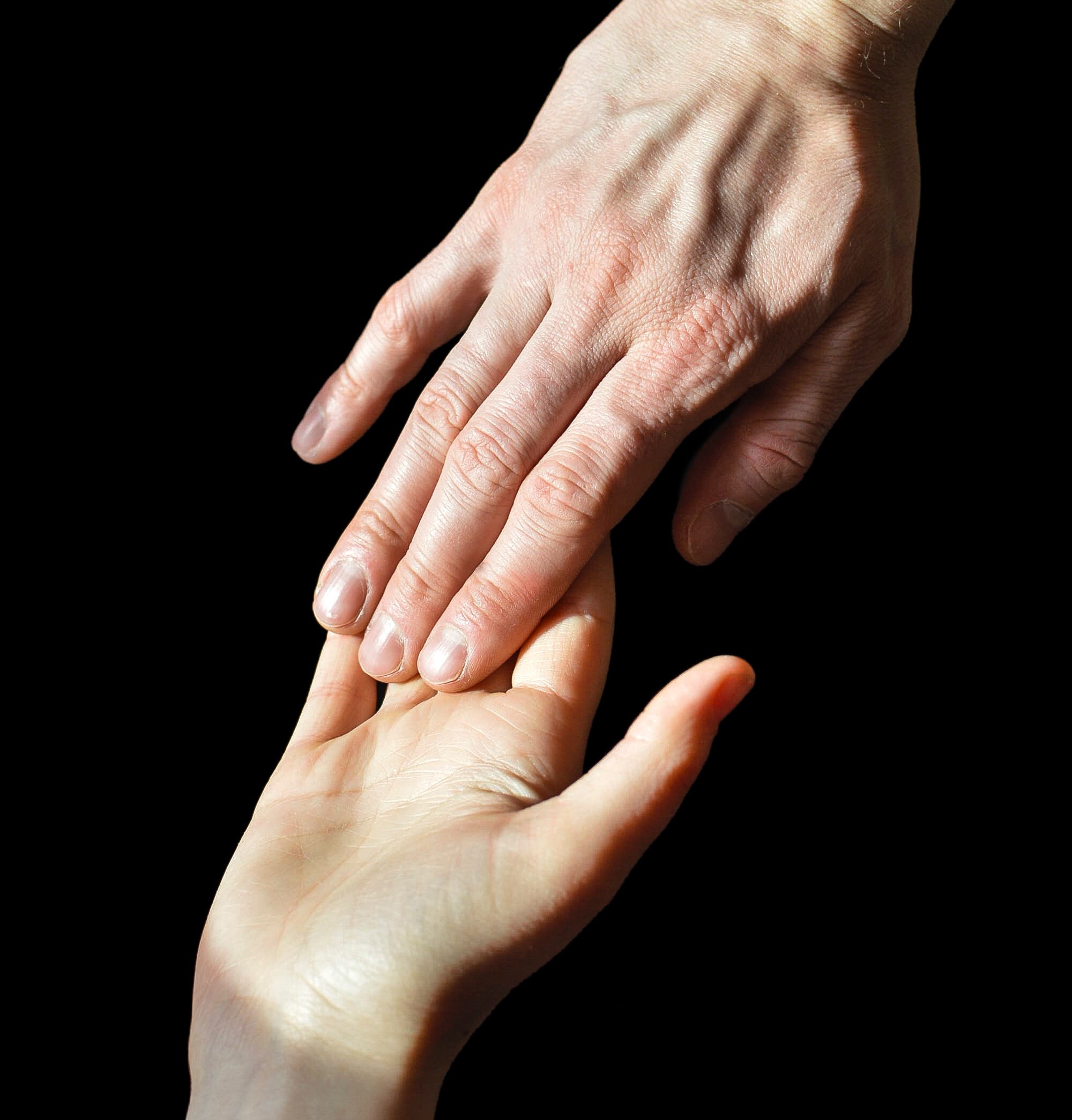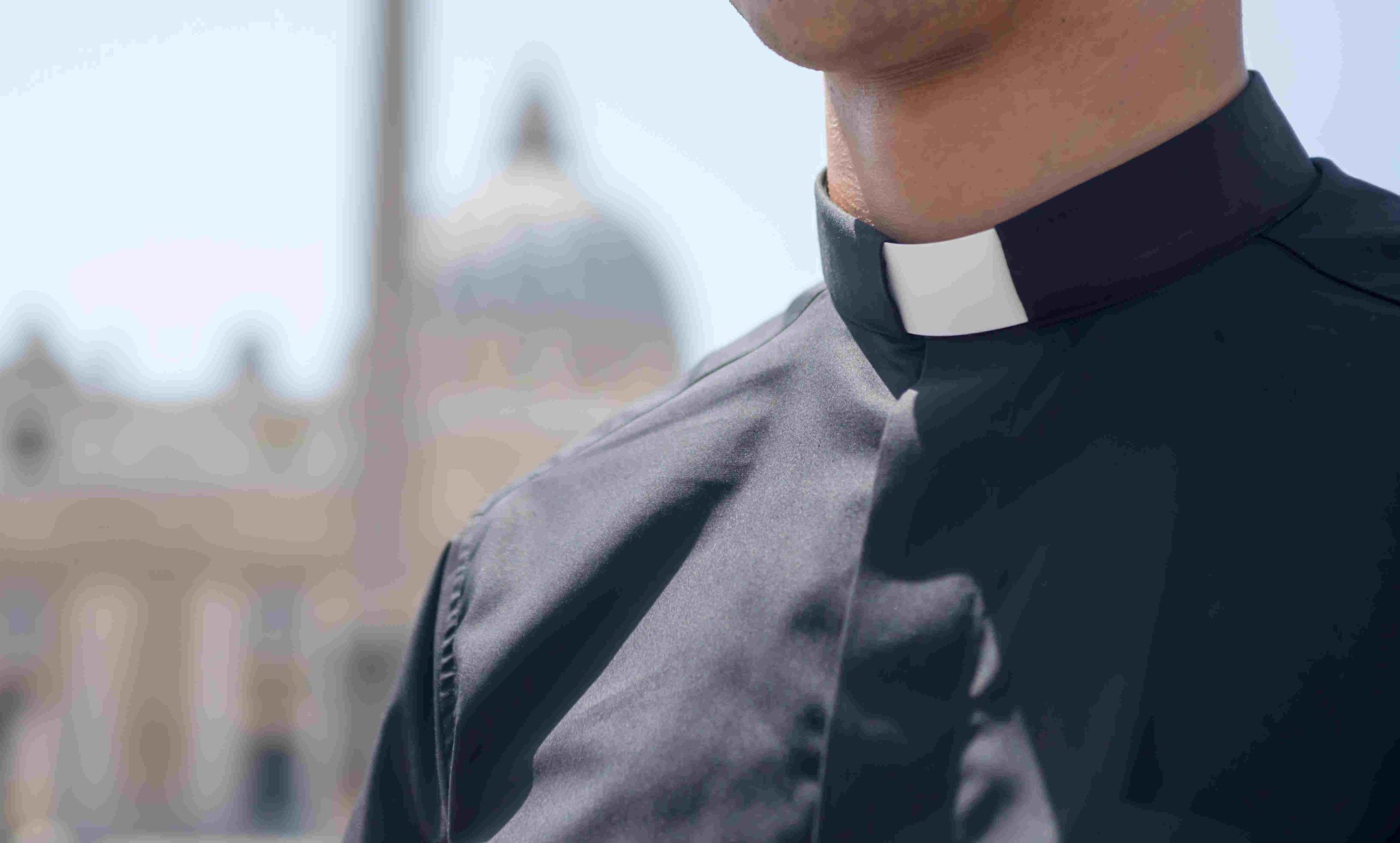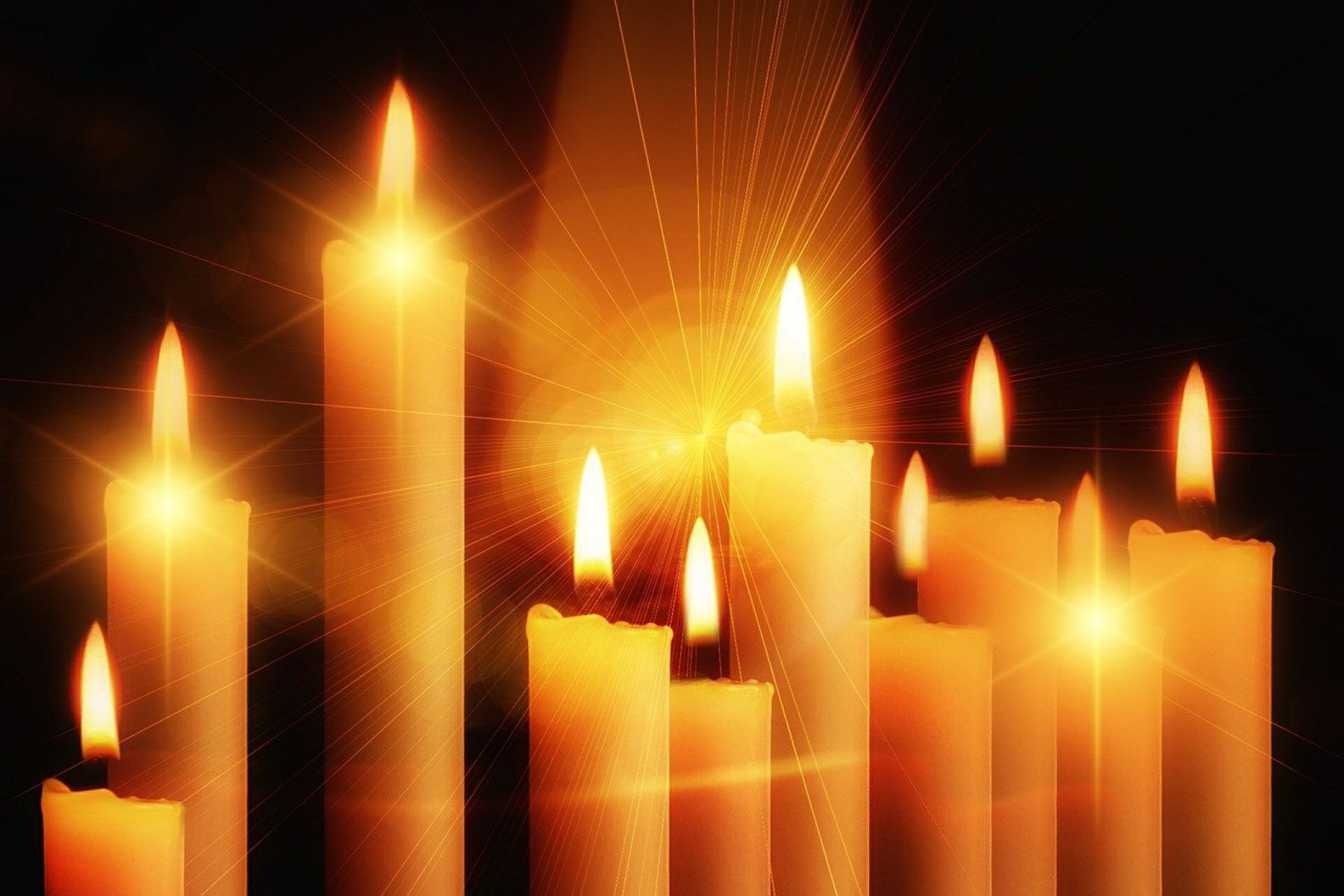Our Commitment To Transparency And Healing
Our Commitment To Protection

80,000+
Children Trained Annually in Safety and Proper Awareness Reporting Procedures

100,000+
Adults Trained in Abuse Awareness and Prevention Since 2008

90,000+
Background Checks on Clergy, Employees and Volunteers Since 2008
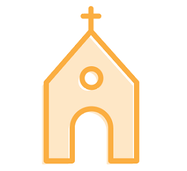
374
Parishes, Schools, Colleges and Other Institutions located in the territory of the Archdiocese of Newark.
List of Credibly Accused Clergy
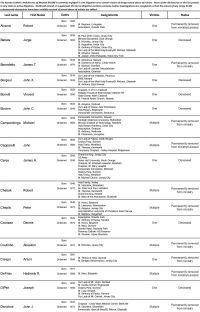
Frequently Asked Questions on Clergy Disclosure List
In an effort to increase transparency, the Archdiocese of Newark is publishing the names of diocesan clergy who have been credibly accused of sexual abuse of a minor (a person under the age of 18). We are hopeful this transparency and accountability will help bring healing to the victims and will help restore trust in the leadership of the Catholic Church. Additionally, the disclosure of the names is part of our ongoing commitment to protect our children and to ensure safe environments for minors.
The list of names is the result of an extensive review of the Archdiocese’s records by an Archdiocesan review team and outside legal counsel to identify allegations of sexual abuse of minors by clergy in the Archdiocese dating back to 1940. The disclosure of this list of names is not an endpoint in our process. Rather, it is an expression of our commitment to protecting our children, and a new level of transparency in the way we report and respond to allegations of abuse. We are committed to the ongoing reporting of names of clergy with a credible allegation(s) of sexual abuse of a minor to law enforcement and to the people of our Church.
The list of names disclosed on February 13, 2019, includes clergy of the Archdiocese of Newark against whom there are one or more substantiated allegations of sexual abuse of a minor dating back to 1940. This list does not include clergy ordained for service within a religious order, as those allegations are handled and reported directly by the order to which they belong.
Since 2002, it has been our policy to report every allegation of sexual abuse of a minor to law enforcement. Inclusion on this list does not indicate admission to an allegation or guilt of the accused. These allegations are serious and only a court of law can state definitively whether or not an allegation(s) is true.
The Archdiocese of Newark is in the process of releasing to the New Jersey Attorney General’s Clergy Abuse Task Force the files of all diocesan clergy who have been credibly accused of abusing a minor. The investigation is ongoing and the Archdiocese is cooperating fully.
The Archdiocese of Newark is committed to the ongoing reporting of names of clergy with a credible allegation(s) of sexual abuse of a minor to law enforcement, to removing from ministry any such clergy, and to keep the public informed. We continue to encourage all victims of abuse to report that abuse to law enforcement, and then to contact our Archdiocesan Victim Assistance Coordinator at 201-407-3256 to access pastoral and therapeutic resources, if so desired.
The Holy See announced on February 16, 2019, sanctions against former Cardinal, Theodore Edgar McCarrick, including dismissal from the clerical state. The statement of the Vatican Congregation for the Doctrine of the Faith (CDF) notes that McCarrick’s appeal against this decision was considered on February 13, 2019, by the Ordinary Session of the CDF. “Having examined the arguments in the recourse”, the statement says, “the Ordinary Session confirmed the decree of the Congresso”. McCarrick was notified of the decision on February 15, 2019. This decision, following the recognition by the Holy Father, is definitive and admits of no further recourse or appeal.
Sexual abuse of a child, minor or youth means any sexual act to or with a child, or other sexual exploitation of a child, or other behavior by which an adult uses a minor as an object of sexual gratification. For purpose of archdiocesan policies, the term “sexual abuse” is not necessarily limited to the definitions of sexual abuse under civil or criminal law. The use, creation or possession of child pornographic images constitutes child sexual abuse.
A “credible allegation” is one that, after review of reasonably available, relevant information in consultation with the Archdiocesan Review Board or other professionals, there is reason to believe it is true. An allegation is determined to be credible when: the accused clergy admits the allegation is true; the accused clergy is convicted by civil authorities in court; an independent review team concludes that the allegation is more likely true than not, based on evidence.
No. Any clergy in the Archdiocese of Newark with a credible allegation(s) of sexual abuse of a minor has been removed from ministry and is required to live a life of prayer and penance. The Archdiocese of Newark has a zero-tolerance policy for any type of mistreatment or misconduct involving children and young adults. In addition to our Safe Environment policies, the Archdiocese follows the Charter for the Protection of Children and Young people first implemented in 2002 requiring that clergy be removed from ministry following a credible allegation(s) of sexual abuse of a minor.
The list of names is the result of an extensive review of the Archdiocese’s records by an Archdiocesan review team and outside legal team to identify credible allegations of sexual abuse of minors by clergy in the Archdiocese dating back to 1940. Despite the best efforts of the Archdiocese to produce a complete and accurate list, the size, magnitude, and age of the Archdiocese make it difficult to guarantee that all historic abuse has been captured. The Archdiocese urges any victim of abuse, no matter the length of time that has passed, to report the abuse to law enforcement and to the Archdiocese’s Victim Assistance Coordinator at 201-407-3256.
Yes, our policy states that activities involving child pornography constitute sexual abuse of a minor.
- 90,000+ background checks on clergy, employees and volunteers since 2008
- 100,000+ adults who have been trained in child sexual abuse awareness and prevention since 2008
- 80,000+ children trained annually in keeping themselves safe
- 300-400 classes for adults annually
Note: numbers reflect RCAN stats only and are approximate
We must protect our children, first, foremost, and always. The Archdiocese of Newark has a zero-tolerance policy for any type of mistreatment or misconduct involving children and young adults.
No clergy in the Archdiocese of Newark with a credible allegation(s) of sexual abuse of a minor is allowed to remain in ministry.
Significant progress has been made to ensure that children are safe in today’s Church. Since 2002, we have fully implemented comprehensive Safe Environment programs and measures through training, reporting, and awareness that have positively impacted how we create and support safe environments throughout the Archdiocese of Newark. These programs are regularly reviewed and verified by an external audit and have resulted in increased awareness and prevention of child sexual abuse. The majority of sexual abuse cases, including the clergy identified on this list, date back decades.
The NJ Catholic dioceses have trained more than 2.3 million adults, children, employees, clergy, and volunteers, and have conducted more than 380,000 background checks on all diocesan and parish personnel with regular contact with children.
Audits dating back to 2003 confirm that the Archdiocese of Newark is fully compliant with the Charter for the Protection of Children and Young People. The (Dallas) Charter addresses allegations of sexual abuse of minors by Catholic clergy and includes guidelines for reconciliation, healing, accountability, and prevention.
We will continue to report to civil authorities all situations where there is reason to believe a child has been abused, cooperating fully with criminal investigations and prosecutions.
We will continue to rely on an independent review board to make recommendations concerning abuse cases and policies.
We will remove from ministry all priests and others credibly accused of sexual abuse of a minor and disclose their names to the faithful of our Church.
We will continue to provide for treatment and counseling for all victims of clergy sexual abuse who come forward.
The Charter for the Protection of Children and Young People, often called “The Dallas Charter,” is a comprehensive set of procedures originally established by the United States Conference of Catholic Bishops (USCCB) in June 2002 for addressing allegations of sexual abuse of minors by Catholic clergy. The Charter also includes guidelines for reconciliation, healing, accountability, and prevention of future acts of abuse. It was revised in 2005, 2011, and 2018. The USCCB employs an independent auditing company to ensure compliance, which has found the Archdiocese of Newark fully compliant with the Charter in every year since audits began in 2003.
It is a detailed agreement, which establishes specific criteria and procedures for reporting alleged sexual offenses to law enforcement. Built on a foundation established by New Jersey’s 21 county prosecutors working cooperatively with the various Catholic Dioceses throughout New Jersey the agreement accomplishes the overriding goal of protecting victims of sexual offenses. It ensures that prosecutors are provided with all relevant information regarding allegations of sexual assault – whether past, present or future.
When the Archdiocese receives an allegation of abuse, it is immediately reported to civil authorities. Click here to view the Policy Responding to Complaints of Sexual Abuse.
Since 2002, it has been our policy to report every allegation of sexual abuse of a minor to law enforcement. The clergy or employee is then removed from their position while civil authorities investigate the case to determine if any evidence warrants criminal charges. Decisions regarding criminal prosecution are made by law enforcement. Concurrently, the church conducts an investigation to determine if evidence reveals the clergy or employee violated the church’s conduct policies. See Charter for the Protection of Children and Young People. The Archdiocese of Newark is committed to the ongoing reporting of names of clergy with a credible allegation(s) of sexual abuse of a minor to law enforcement and to the people of our Church.
The Archdiocese of Newark has a zero-tolerance policy for any type of mistreatment or misconduct involving children and young adults. The Safe Environment team at the Archdiocese maintains the nationally recognized Virtus® training program, which specifically provides the tools by which all personnel and volunteers are trained to recognize signs of potential predators of children. Every Archdiocesan employee, including clergy, must undergo a background check and Virtus® training, and instructed on how to report when they have a concern that a child may be in danger. This training and an updated background check must be completed every five years. All Archdiocesan volunteers who may have contact with children also are required to complete the same process.
Bishops and Cardinals are under the jurisdiction of the Holy See or Vatican. Currently, the United States Conference of Catholic Bishops (USCCB) is working with the Vatican to develop new reporting processes for reporting complaints as well as for more effective resolution of future complaints.
Since 2002, settlements with victims of sexual abuse of minors do not include confidentiality provisions unless the victim asks for confidentiality. However, while the terms of settlements are not confidential, out of respect for the victim’s privacy, the Archdiocese does not disclose the terms.
The Archdiocese has insurance or self-funded insurance reserves to address monetary claims for victims. Donations to fundraising initiatives such as the Annual Appeal or Capital Campaign are not contributed to the Archdiocesan insurance fund.
As a sign of our commitment to the continued healing of victims of church sexual abuse, a new Independent Victim Compensation Program has been established. This program will allow those sexually abused as minors by clergy to seek compensation in a compassionate, expeditious, independent and transparent manner. While no degree of financial compensation can adequately address the suffering endured, we want this to be a genuine expression of our remorse and our desire to comfort and compensate those victimized by this abuse.
All five Roman Catholic Dioceses of New Jersey, including Newark, Camden, Trenton, Paterson, and Metuchen, have committed to the establishment of this program. It will provide the resources to compensate those victims of child sexual abuse by clergy of the Dioceses in New Jersey whose financial claims are legally barred by New Jersey’s statute of limitations. This will give victims a formal voice and allow them to be heard by an independent panel. The program also will assure that victims will receive financial compensation regardless of whether their allegations meet the time requirements of the statute of limitations. This initiative will expand on the current arrangement, through which the Catholic Church in New Jersey already has provided some fifty million dollars in financial settlements to victims of abuse. The vast majority of these allegations had been barred by the statute of limitations. The Program also will be a resource to provide permanent funding for necessary counseling to those who have been victimized. Such counseling often is needed to help in the healing of those who have been harmed.
The Archdiocese of Newark takes very seriously any and all credible allegations of victimization of minors by members of the clergy, religious, lay staff, or volunteers of the Archdiocese.
Anyone with knowledge of abuse against any individual is urged to notify law enforcement, and then the Archdiocese to the Safe Environment director and the victim assistance coordinator.
Accountability
We must protect our children, first, foremost, and always. The Archdiocese of Newark has a zero-tolerance policy for any type of mistreatment or misconduct involving children and young adults. No clergy in the Archdiocese of Newark with a credible allegation(s) of sexual abuse of a minor is allowed to remain in ministry.
Significant progress has been made to ensure that children are safe in today’s Church. Since 2002, we have fully implemented comprehensive Safe Environment programs and measures through training, reporting, and awareness that have positively impacted how we create and support safe environments throughout the Archdiocese of Newark. These programs are regularly reviewed and verified by an external audit and have resulted in increased awareness and prevention of child sexual abuse. The majority of sexual abuse cases, including the clergy identified on this list, date back decades.
The NJ Catholic dioceses have trained more than 2.3 million adults, children, employees, clergy, and volunteers, and have conducted more than 380,000 background checks on all diocesan and parish personnel with regular contact with children. The Archdiocese of Newark alone has:
- Trained 80,000+ children annually in keeping themselves safe;
- Trained 100,000+ adults in child sexual abuse awareness and prevention since 2008;
- Conducted 90,000+ background checks on clergy, employees and volunteers since 2008;
- Conducted 300-400 classes annually for adults.
Audits dating back to 2003 confirm that the Archdiocese of Newark is fully compliant with the Charter for the Protection of Children and Young People . The (Dallas) Charter addresses allegations of sexual abuse of minors by Catholic clergy and includes guidelines for reconciliation, healing, accountability, and prevention.
- We will continue to report to civil authorities all situations where there is reason to believe a child has been abused, cooperating fully with criminal investigations and prosecutions.
- We will continue to rely on an independent review board to make recommendations concerning abuse cases and policies.
- We will remove from ministry all priests and others credibly accused of sexual abuse of a minor and disclose their names to the faithful of our Church.
- We will continue to provide for treatment and counseling for all victims of clergy sexual abuse who come forward.
The Charter for the Protection of Children and Young People
The Charter for the Protection of Children and Young People, often called “The Dallas Charter,” is a comprehensive set of procedures originally established by the United States Conference of Catholic Bishops (USCCB) in June 2002 for addressing allegations of sexual abuse of minors by Catholic clergy. The Charter also includes guidelines for reconciliation, healing, accountability, and prevention of future acts of abuse. It was revised in 2005, 2011, and 2018. The USCCB employs an independent auditing company to ensure compliance, which has found the Archdiocese of Newark fully compliant with the Charter in every year since audits began in 2003.
The 2002 Memorandum of Understanding:
The Memorandum of Understanding among Certain Organizations and the County Prosecutors Regarding the Reporting of Certain Offenses, commonly referred to as the Memorandum of Understanding (MOU), was signed on behalf of the Archdiocese and by the New Jersey Attorney General and respective County Prosecutors in December 2002. It commits the Archdiocese of Newark to full cooperation with law enforcement and it requires the Archdiocese to report allegations of sexual abuse to the appropriate county prosecutor.
When the Archdiocese receives an allegation of abuse:
When the Archdiocese receives an allegation of abuse, it is immediately reported to civil authorities. Click here to view the Policy Responding to Complaints of Sexual Abuse.
Steps Taken with A Member Of The Clergy Following A Credible Accusation:
Since 2002, it has been our policy to report every allegation of sexual abuse of a minor to law enforcement. The clergy or employee is then removed from their position while civil authorities investigate the case to determine if any evidence warrants criminal charges. Decisions regarding criminal prosecution are made by law enforcement. Concurrently, the church conducts an investigation to determine if evidence reveals the clergy or employee violated the church’s conduct policies. See Charter for the Protection of Children and Young People. The Archdiocese of Newark is committed to the ongoing reporting of names of clergy with a credible allegation(s) of sexual abuse of a minor to law enforcement and to the people of our Church.
Steps that the Archdiocese has Taken to Prevent Further Abuse:
The Archdiocese of Newark has a zero-tolerance policy for any type of mistreatment or misconduct involving children and young adults. The Safe Environment team at the Archdiocese maintains the nationally recognized Virtus® training program, which specifically provides the tools by which all personnel and volunteers are trained to recognize signs of potential predators of children. Every Archdiocesan employee, including clergy, must undergo a background check and Virtus® training, and instructed on how to report when they have a concern that a child may be in danger. This training and an updated background check must be completed every five years. All Archdiocesan volunteers who may have contact with children also are required to complete the same process.
Oversight of Bishops and Cardinals:
Bishops and Cardinals are under the jurisdiction of the Holy See or Vatican. Currently, the United States Conference of Catholic Bishops (USCCB) is working with the Vatican to develop new reporting processes for reporting complaints as well as for more effective resolution of future complaints


